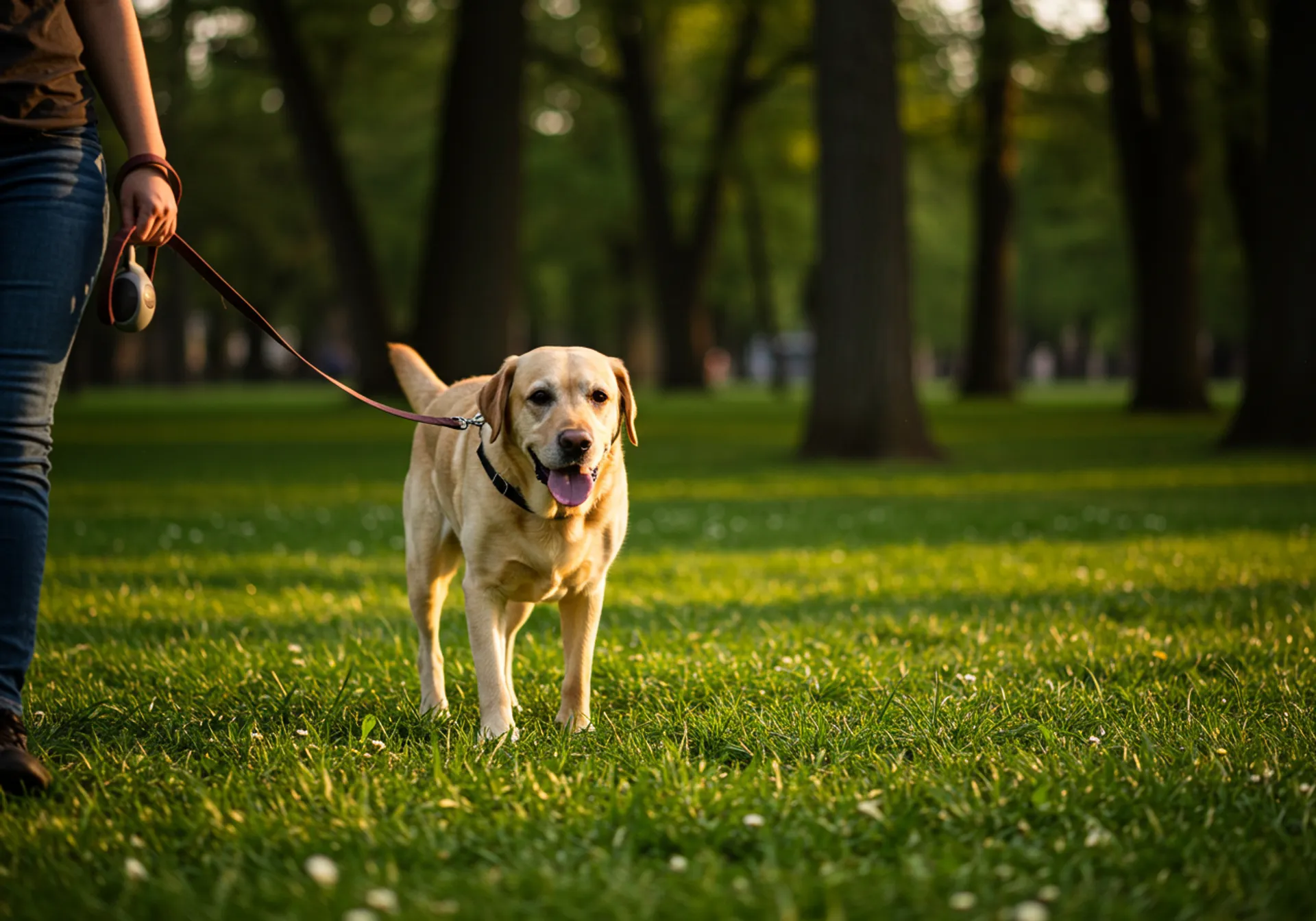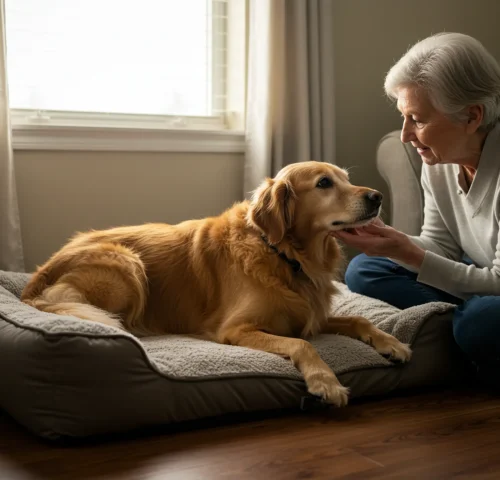When Is a Dog Considered a Senior?
The age when a dog becomes “senior” depends on their size and breed. Small breeds often live longer, reaching senior status around age 10–11, while large breeds may be considered seniors as early as 6–7 years old. Knowing when your dog enters this stage helps you adapt their care proactively.
Nutrition for Senior Dogs
Diet plays a crucial role in maintaining your dog’s health as they age. Senior dogs may need fewer calories to prevent obesity, but more nutrients to support joint health and organ function.
Key Nutritional Considerations
- Protein: High-quality protein supports muscle maintenance, which naturally declines with age.
- Joint Support: Diets enriched with glucosamine and chondroitin help ease arthritis and joint pain.
- Fiber: Helps with digestion and prevents constipation, which can become more common in older dogs.
- Omega-3 fatty acids: Found in fish oil, these support brain function and reduce inflammation.
Feeding Tips
Feed smaller, more frequent meals if your senior dog struggles with digestion. Softened kibble or wet food may be easier on sensitive teeth. Always provide fresh water, as older dogs are more prone to dehydration.
Exercise for Senior Dogs
Exercise remains important, even for older dogs. It keeps joints flexible, maintains a healthy weight, and prevents boredom. The key is to adjust activity to your dog’s energy and ability.
Recommended Activities
- Short walks: Frequent, gentle walks are better than long, strenuous ones.
- Swimming: A low-impact option for dogs with arthritis or joint pain.
- Gentle play: Light fetch or tug with soft toys can still bring joy.
- Mental games: Puzzle feeders and nose work keep the brain sharp.
Watch for signs of overexertion, like heavy panting or stiffness after activity. Adjust the pace as needed.
Health Care for Senior Dogs
Regular veterinary care becomes even more critical as your dog ages. Preventive care helps catch issues early, improving both quality and length of life.
Vet Visits
Schedule checkups every 6 months instead of annually. Vets may recommend bloodwork, dental exams, and screenings for conditions like kidney disease, arthritis, or diabetes.
Dental Health
Dental disease is common in senior dogs. Brush teeth regularly with dog-safe toothpaste, provide dental chews, and consider professional cleanings.
Weight Management
Excess weight puts stress on joints and increases the risk of chronic illness. Work with your vet to maintain a healthy body condition score.
Common Health Issues in Seniors
- Arthritis and joint stiffness
- Dental disease
- Hearing or vision loss
- Kidney or liver disease
- Cognitive decline (dog dementia)

Comfort and Home Adjustments
Making your home senior-friendly improves your pup’s daily comfort and mobility.
Sleeping Areas
Provide orthopedic or memory foam beds to relieve pressure on joints. Keep their bed in a warm, quiet area away from drafts.
Mobility Assistance
Ramps or pet stairs help dogs access couches, beds, or cars. Non-slip rugs prevent slipping on hardwood or tile floors.
Temperature Control
Seniors are more sensitive to temperature extremes. Provide extra warmth in winter and ensure cool, shaded areas in summer.
Mental & Emotional Care
Older dogs benefit from mental stimulation and companionship just as much as younger ones. Cognitive decline can be slowed by keeping your dog’s brain active.
Ways to Support Emotional Health
- Interactive toys and puzzle feeders
- Short training sessions to reinforce familiar commands
- New but gentle experiences, like slow walks in new areas
- Quality bonding time — cuddles, grooming, or simply sitting together
Senior dogs often crave closeness. Extra attention helps ease anxiety and reassures them as their senses decline.
Signs Your Senior Dog Needs Extra Care
Watch for changes that may indicate discomfort or illness:
- Difficulty standing, climbing stairs, or getting up from lying down
- Excessive thirst or urination
- Loss of appetite or sudden weight changes
- Confusion, restlessness, or disrupted sleep patterns
- Unusual lumps, coughing, or lethargy
If you notice these, contact your vet promptly. Early detection often leads to better outcomes.
Travel and Outings With Senior Dogs
Seniors can still enjoy adventures with the right preparation. Use supportive harnesses, bring extra water, and keep trips short. If traveling by car, provide a comfortable crate or padded seat area. For long trips, consult your vet first.
End-of-Life Care and Quality of Life
One of the hardest parts of pet ownership is saying goodbye. Focus on your dog’s comfort, pain management, and happiness. Vets can guide you through palliative care options. While bittersweet, cherishing the final stages with love and dignity is the greatest gift you can give your senior pup.
Final Thoughts
Caring for a senior dog requires patience, compassion, and adjustments. With the right senior dog care, you can ensure your pup’s golden years are filled with comfort and joy. Remember, aging doesn’t mean the end of adventures — it just means finding new, gentler ways to share them. For more resources, visit our Senior Dogs category here on The Dog Blog.




